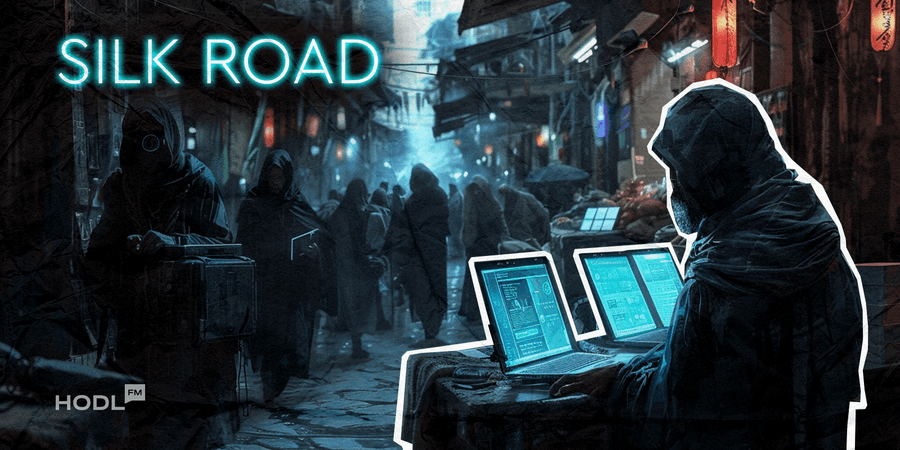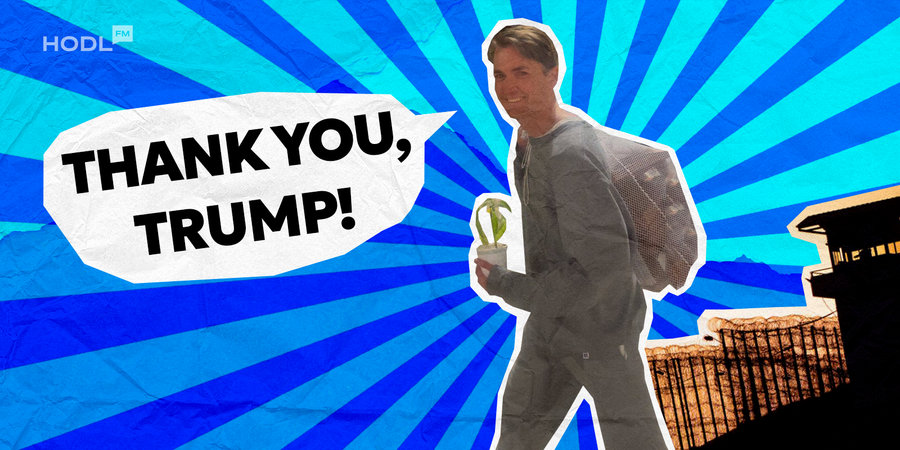Ross Ulbricht, the once-infamous founder of the Silk Road marketplace, spent over a decade behind bars for his role in creating one of the first and largest darknet platforms.
On January 21, 2025, just a week after his inauguration, Donald Trump fulfilled a controversial promise by granting Ulbricht a full and unconditional pardon. Trump called the sentencing "ridiculous" and described the punishment as "an unjust example of government overreach against its opponents."
Case Background
In 2011, Ross Ulbricht launched Silk Road, an anonymous online marketplace leveraging Tor and Bitcoin — an innovative combination at the time. Silk Road quickly gained notoriety as a platform for trading goods and services, including illegal items.
Users could anonymously purchase anything from weapons to drugs. Over its two years of operation, Silk Road served more than 100,000 customers and earned approximately $13 million in Bitcoin through commissions.
In October 2013, the FBI arrested Ulbricht at a library in San Francisco. He was charged with drug trafficking, money laundering, and computer crimes. During the trial, it was proven that he operated Silk Road under the alias "Dread Pirate Roberts." In 2015, Ulbricht was sentenced to two life terms plus an additional 40 years without the possibility of parole.
The "Free Ross" Campaign
Since Ross Ulbricht's sentencing, his mother, Lyn Ulbricht, has led the "Free Ross" movement. This campaign sought to draw public attention to the harshness of his punishment, arguing that the sentence was disproportionate to his actions. The slogan "Free Ross" gained traction in the cryptocurrency community, where Ulbricht was regarded as a "Bitcoin Legend."
Why Ross Ulbricht Is A #Bitcoin Legend
— The Bitcoin Historian (@pete_rizzo_) June 5, 2024
Launched the largest Bitcoin market at $0.50
Had 200,000 $BTC taken by the government
Serving a 2x life sentence
A thread. pic.twitter.com/K5q4Y8BabB
Supporters of the movement claimed the punishment was excessive. They pointed out that other participants in Silk Road, including major dealers, received significantly lighter sentences. Moreover, they emphasized that the Silk Road functioned more as a platform than a direct tool for illegal activities.
In 2024, on the brink of his second presidential term, Donald Trump publicly announced that he would reconsider Ulbricht's case if reelected. This move was part of his strategy to court libertarian and cryptocurrency enthusiasts who advocate for reduced government control.
Ross Ulbricht was deeply inspired by Trump's promises, eagerly anticipating his electoral victory and expressing endless gratitude and appreciation for the possibility of freedom.
Last night, Donald Trump pledged to commute my sentence on day 1, if reelected. Thank you. Thank you. Thank you.
— Ross Ulbricht (@RealRossU) May 26, 2024
After 11 years in prison, it is hard to express how I feel at this moment. It is thanks to your undying support that I may get a second chance.
Ulbricht’s lawyer, Brandon Sample, stated after the pardon:
Ross is grateful to President Trump for this act of mercy. He now has a chance to begin a new chapter of his life.
A seemingly happy conclusion to the story — but where’s the catch?
Why Ross Ulbricht Does Not Deserve Freedom
As we know, on May 20, 2015, Ross William Ulbricht was convicted of large-scale drug trafficking, conspiracy to launder money and hacking activities. But is this truly what he should have been sentenced for? A more fitting charge might have been for allegedly ordering and paying for up to six murders of Silk Road users he suspected of theft and blackmail.
During Ulbricht's trial, prosecutors highlighted a conversation that demonstrated the Silk Road boss's willingness to resort to extreme measures when it served his interests.
In this exchange, Ulbricht first discussed intimidating and then eliminating several blackmailers who, according to him, threatened to expose information about 24 vendors and thousands of Silk Road customers unless they were paid $700,000.
At first, Ulbricht actively negotiates the price for the murder and confirms the urgency of the task, and eventually agrees to pay $150,000 in Bitcoin for the "unclean" assassination of FriendlyChemist.
If we consider a hypothetical situation, where Ulbricht had been prosecuted solely for ordering and paying for six murders, his sentence would depend on the case's specific circumstances. In the U.S., such actions are classified as "murder-for-hire" and are punishable under various federal and state laws.
According to 18 U.S.C. § 1958, the minimum sentence is 10 years in prison, and the maximum penalty is death or life imprisonment if the murder was carried out. In this case, while the murders did not occur, the intent was proven.
Additionally, each of the six instances could have been treated as a separate count, potentially leading to consecutive sentences. Moreover, the involvement of a federal agent as a fake hitman would enhance the case. The use of government resources and interference with federal authorities typically intensifies the severity of the crime.
The most likely sentence in such a scenario would be life imprisonment, or even six life terms.
Interestingly, Ulbricht was not charged with murder-for-hire in his case in the Southern District of New York, despite facing charges for drug conspiracy, money laundering, and other crimes. (However, he was charged with murder-for-hire in a separate case in Baltimore.)
The prosecution acknowledged in court that the alleged Silk Road murder victims were never found, and the police couldn’t locate records of anyone by those names.
Now, over a decade after his arrest, Ulbricht is granted a chance at a fresh start. But does he truly deserve it, given his willingness to deprive others of their lives?

Disclaimer: All materials on this site are for informational purposes only. None of the material should be interpreted as investment advice. Please note that despite the nature of much of the material created and hosted on this website, HODL FM is not a financial reference resource and the opinions of authors and other contributors are their own and should not be taken as financial advice. If you require advice of this sort, HODL FM strongly recommends contacting a qualified industry professional.





